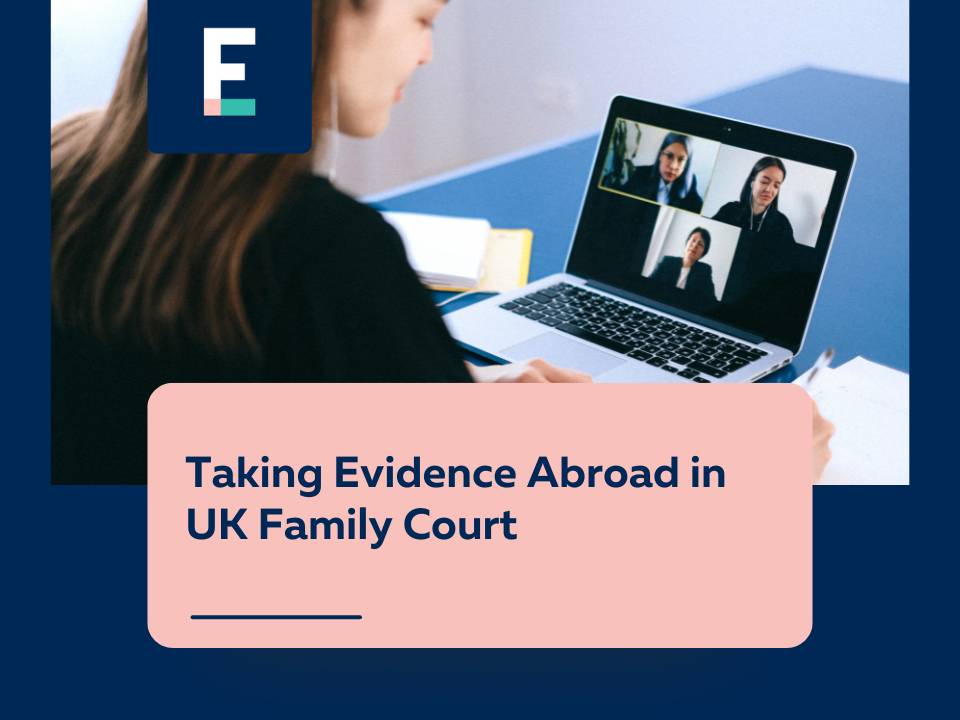Taking Evidence Abroad in UK Family Court: Procedures and Considerations
15th September 2025

15th September 2025


In the realm of family law, the process of taking evidence from abroad can be complex and fraught with legal considerations. The case of PZ v ZD (Financial Remedies: Needs: Adverse Inferences: Taking of Evidence from Outside the Jurisdiction) [2025] EWFC 171 (B) provides valuable insights into the proper approach to this issue. This article explores the procedures, legal considerations, and potential effects on clients when using evidence from abroad in Family Court.
The process of taking evidence from abroad in UK Family Court is governed by several legal frameworks and procedural guidelines. In the case of PZ v ZD, the husband applied to give evidence remotely from Pakistan due to anxiety and aerophobia, highlighting the need for clarity in such situations. Courts should not assume that foreign governments will permit their nationals or others within their jurisdiction to be examined by video conferencing in England and Wales. If there is any doubt, queries should be directed to the Foreign and Commonwealth Office (International Legal Matters Unit, Consular Division).
For countries like Pakistan, which are not signatories to the Hague Evidence Convention, a formal letter of request to the competent judicial authorities is required for the taking evidence by video conferencing by a UK Court. This letter should state the nature of the proceedings and include the questions to be put to the person to be examined, accompanied by a translation.
In the absence of formal agreements, informal guidance from the Financial Remedy Court (FRC) leadership judges suggests that prior authorisation is not necessary unless there is clear evidence that giving evidence from abroad may expose the witness to a risk of prosecution. In PZ v ZD, Deputy District Judge Gwynfor Evans relied on this guidance and the overriding objective of the Family Procedure Rules (FPR 1.1) to hear the husband's evidence via video conferencing, despite technical disruptions.
The process of taking evidence abroad can have significant implications for clients. In PZ v ZD, the husband's evidence was repeatedly interrupted by power cuts and internet disruptions, which could potentially affect the outcome of the case. Clients should be made aware of the potential challenges and risks associated with remote evidence, including technical difficulties and the need for compliance with foreign legal requirements.
The case of PZ v ZD underscores the need for formal clarification on the proper approach to taking evidence abroad in Family Court. Legal practitioners must navigate a complex landscape of procedural requirements and informal guidance, balancing the need for effective evidence gathering with the potential risks to clients. As the legal framework continues to evolve, it is crucial for practitioners to stay informed and provide clients with comprehensive advice on the implications of taking evidence from abroad.

Why Choose Us?
Reasons why clients choose Fenton Elliott to represent them and get the results they expect.
More about us
Contact Us Today
If you are looking for employment or family law advice we can help. We will respond quickly to all enquiries.
Free enquiry